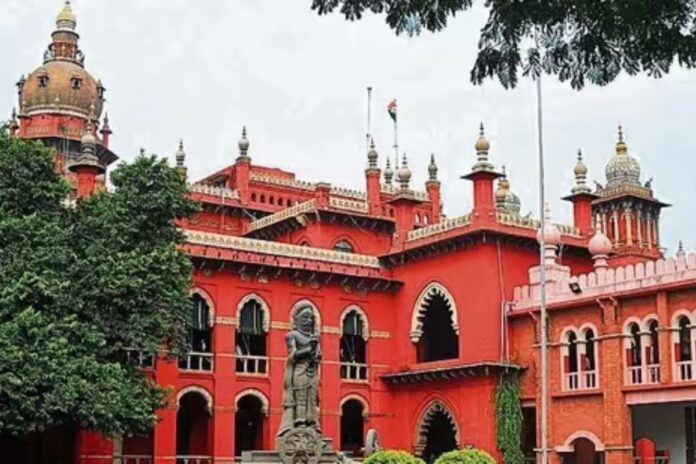
The Anna University sex abuse case has garnered national attention, especially after the Madras High Court intervened, calling for a Special Investigation Team (SIT) probe into the sexual assault of a 19-year-old student. The victim, a second-year engineering student, was allegedly assaulted on December 23 while sitting with her male friend on campus.
The court’s intervention has highlighted several lapses in the investigation process, especially concerning the police’s mishandling of the First Information Report (FIR), which led to victim-blaming and further harm to the survivor. As a result, the Madras High Court has ordered ₹25 lakh in compensation for the victim, along with protection for her and her family.
Anna University Sex Abuse: Details of the Attack
On December 23, the survivor was sitting with her male friend in an open area within Anna University’s campus when the alleged perpetrator, Gnanasekaran, approached them. He first attacked the survivor’s friend, a fourth-year student, before dragging her behind a building, where he assaulted her. The police arrested the 37-year-old man, based on the survivor’s complaint. This incident has sparked outrage among the student body and the public, as it reflects serious issues with both the safety of women on university campuses and the response of the authorities.
Madras High Court Orders SIT Investigation
The Madras High Court’s swift decision to form an SIT composed of three senior Indian Police Service (IPS) officers emphasizes the need for a thorough and unbiased investigation. The court cited multiple lapses in the initial police investigation, which failed to adequately protect the victim’s identity. It also criticized the police for their failure to maintain the dignity and privacy of the survivor, resulting in mental and emotional harm.
The court expressed particular concern over the contents of the FIR, which, instead of focusing on the perpetrator’s actions, seemed to shift blame onto the victim. The FIR referenced the survivor’s supposed actions with her male friend, further perpetuating victim-shaming. The Madras High Court condemned this approach, calling it “misogynistic” and highlighting the violation of the survivor’s fundamental rights.
Victim Blaming and Police Lapses
The Madras High Court was particularly vocal about the victim-blaming language in the FIR. It stated that the phrasing was not only inappropriate but also a form of victim shaming. The court noted that the FIR contained derogatory language, implying that the survivor’s attire or behavior might have somehow provoked the assault. The justices expressed disgust at the tone of the report, stating it resembled the kind of dialogue one might expect to hear in a boys’ hostel, suggesting that the survivor was somehow at fault for the attack.
This deplorable language led to widespread condemnation and calls for better handling of sexual assault cases. The Madras High Court emphasized the importance of upholding women’s dignity and pointed out that society’s approach to such matters must change. The bench said that no woman should be judged for how she chooses to dress, speak, or whom she speaks to.
NCW Constitutes Fact-Finding Committee
In response to the incident, the National Commission for Women (NCW) took suo motu cognizance of the case. The NCW condemned the attack in the strongest terms, calling it a heinous act. The Commission also expressed its support for the survivor in her pursuit of justice. The NCW highlighted that the accused, Gnanasekaran, had a history of committing similar offenses, and the police’s negligence had allowed him to continue his predatory behavior.
The NCW took further action by forming a fact-finding committee to investigate the events surrounding the assault. The commission urged the Tamil Nadu police to take appropriate measures to ensure the safety of the survivor, including providing her with free medical care and protection. It also recommended the addition of specific sections in the FIR to ensure stricter punishment for the accused.
The Importance of Protecting Women’s Rights
The Anna University sex abuse case is part of a larger conversation about the safety of women in educational institutions and public spaces. It underscores the need for swift and decisive action in cases of sexual assault. The intervention of the Madras High Court and the NCW highlights the critical role that legal bodies and governmental organizations play in protecting survivors and ensuring that justice is served. It also stresses the need for a cultural shift that no longer tolerates victim-blaming or shaming.
In this case, the failure of the Tamil Nadu police to protect the survivor’s identity and the mishandling of the investigation have made the need for systemic reform all the more urgent. The incident has sparked widespread discussions about how law enforcement can better address sexual violence and ensure the safety of all individuals, especially women, on university campuses.
A Call for Justice and Change
The Madras High Court’s ruling serves as a stark reminder that sexual violence is a serious crime that requires an immediate and well-handled response from law enforcement. The formation of the SIT and the compensation ordered for the survivor are steps in the right direction, but they also point to the ongoing struggle for justice and accountability in cases of sexual assault.
As the investigation continues, the hope is that the system will correct its failures, ensuring that survivors receive the respect, protection, and justice they deserve. This Anna University rape case is not just about one survivor—it is about the need for a broader societal change to combat sexual violence and support survivors. The Madras High Court and NCW have set an important precedent, one that demands a more compassionate and just approach to handling such sensitive issues.
